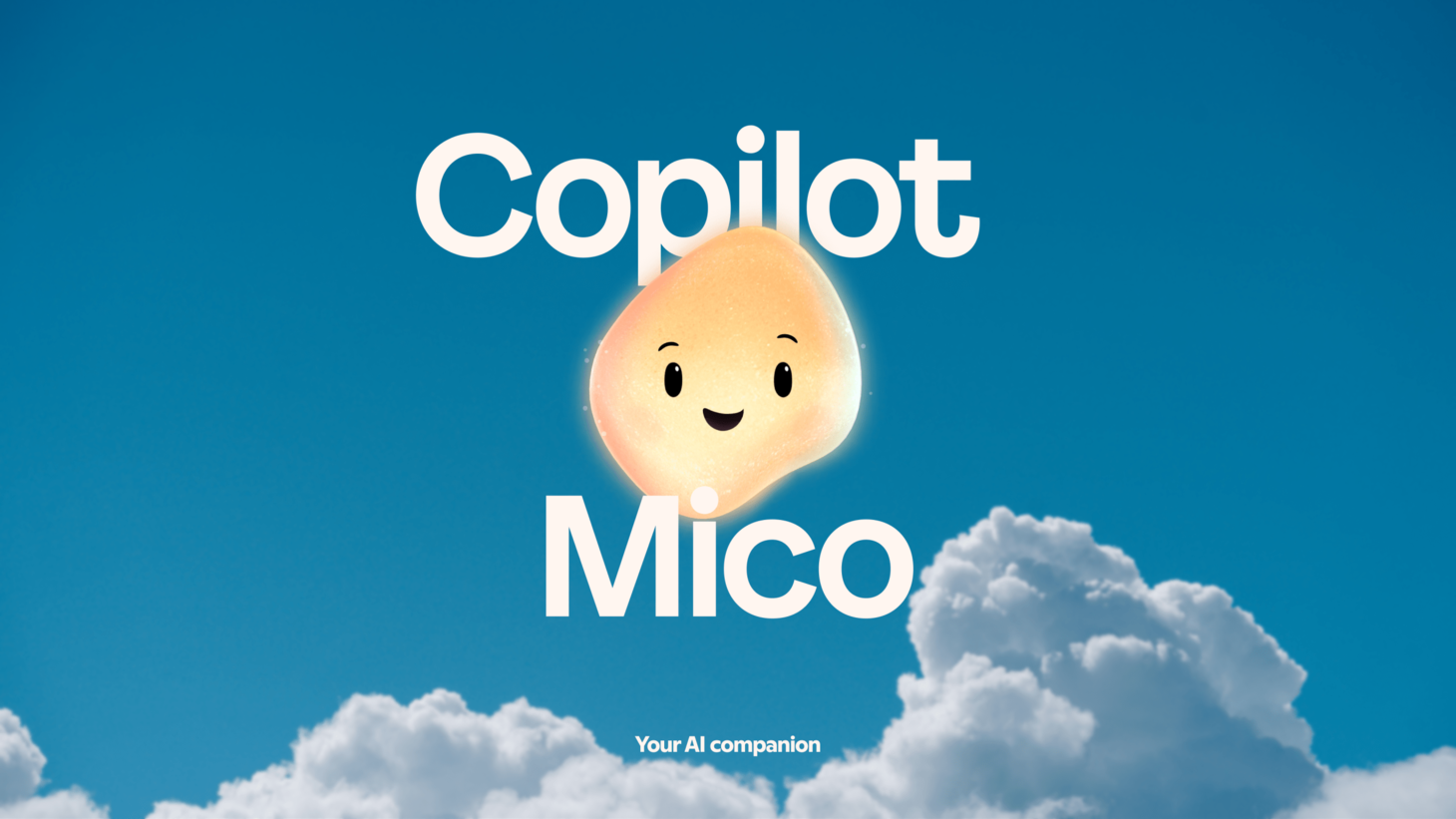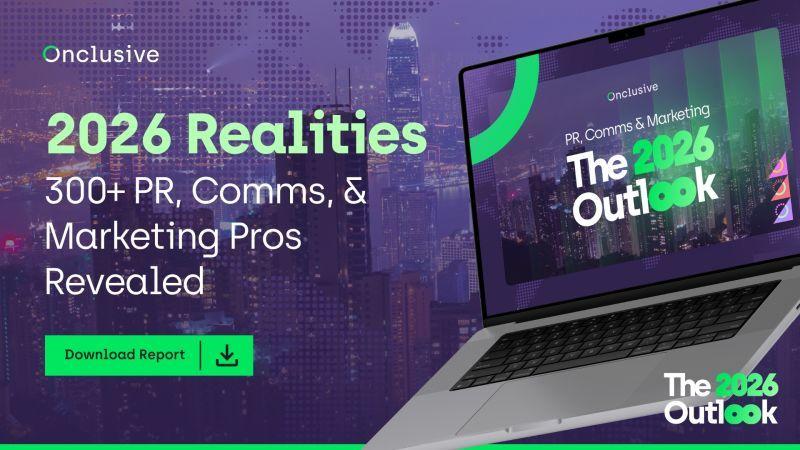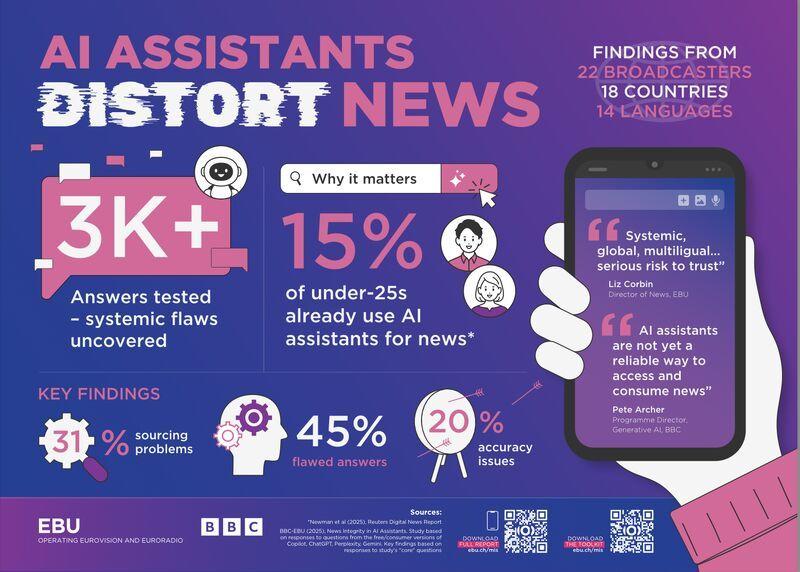 Welcome
Welcome

Hello from Scotland
I'm writing this sitting on the decking of our but and ben looking at over the Ayreshire countryside where we're taking a short family break. We're in Scotland because I'm speaking at the PRCA NewBizFest in Glasgow on Thursday.
In this issue I've news of a webinar on GEO I'm doing for PRWeek, Campaign and Management Today. I look at what the UK government's new AI Growth Labs mean for the PR and communications sector,
There's a case study about Lloyds Bank’s AI saving 45 minutes a day per person by using Copilot.
I cover Onclusive 2026 report (which I accidentally missed out of the last issue) and tackle the thorny issue of why ROI often isn’t the right measure for the impact of communications,
There is a my breakdown of new Copilot features (which contrary to rumours doesn't include the return of Clippy).
I dig into the BBC and EBU’s claims about AI “flaws" in answers about news. And lots more.
The truth is I tried writing it while sitting outside, but my fingers began to go numb so I retreated back inside, It's also a bit grander than a but and ben as its an impressive converted barn. For the uninitiated a but and ben is technically a two room cottage in the countryside,
 News
News
Will your brand survive AI search? webinar with PRWeek and Campaign
Our 'Hold the Front Page Traditional Media’s Influence in the Age of AI' with 72Point Group and Onepoll was fully booked within days of us launching it, even though it doesn’t take place until 11 November. However, there is still time to book a place at the PRWeek/ Campaign/Management Today webinar on "Will your brand survive AI search?".
It is moderated by PRWeek deputy editor Siobhan Holt and the panellists are Sarah Salter, VP Global Partnerships and AI Innovation at WPP; Jamie Brader, Commercial Director at Notified (sponsor) and me.
You can register here.
AI for internal communicators podcast
There are so many great PR, comms and business podcasts it's impossible to listen to even a fraction of them. In this episode of Rachel Miller's great Candid Comms podcast, she shares an extract from her book Internal Communication Strategy. It's the Expert View she asked me to contribute on CommTech - communication technology. Please listen to the whole episode and you'll find her talking about my contribution at 33:45.
 Corporate affairs
Corporate affairs

AI Growth Labs increase need for social licence for AI
The UK government’s announcement of AI Growth Labs mean that it is more important than ever the communications professionals understand the need for social licence. The labs mean regulations can be turned off temporarily to enable AI experiments. This is a great opportunity (and risk) for PR and comms.
The opportunity is that to succeed the AI experiments need public trust and this is what our role should be.
Read my full article to find out more.
Lloyds to put chief executive and all top bosses through six-month AI course
When the CEO and board of Lloyds commit to a six-month AI course it's probably time to stop thinking about AI and actually committing to learning and AI adoption. You don't need to commit to 80 hours of study over six months at the University of Cambridge, but you do need to stop dilly dallying and shilly shallying.
PR and comms leaders have a dual need for AI literacy. Yes, they need to know how to use it themselves and embed it into the day to day work of themselves and their teams. But they also have a broader role. They need to be able to provide expert counsel on the implications of AI on reputations and relationships. AI is both a huge opportunity and huge risk. If you can't provide expert advice, you become part of the risk.
Lloyds is also putting real investment into AI and securing real returns. Read the case study below to see how much it is gaining.
 CommTech tools
CommTech tools

Copilot improvements to make it a personal companion
Last week's big AI announcement from Microsoft sees impressive new features rolled out in Copilot. It's important to note this is the personal version of Copilot, not the business or enterprise one you should use at work. The big focus is on making Copilot a personal companion. I've written a short article explaining some of them which include:
- Collaboration with up to 32 friends or family on chats so for example you could plan a night out or hoiliday.
- Mico isn't Clippy resurrected but an "optional visual presence" to make it easier to interact with Copilot.
- Better memory so Copilot gets to know you and can provide better contextual answers.
- Connectors let you connect Copilot to your email, diary and files from Microsoft and Google.
- Proactive Actions mean that it can update you on Deep Research answers.
- The new health and education features are US only and I suspect will remain so for some time,.
 Case studies
Case studies
Assist, the AI tool built for government communicators - GCS
You should already know that I'm a big fan of how the UK Government Communication Service is adopting AI. It has just released a wealth of new information about it which shows some of AI's potential for all PR and comms teams, in-house or agency.
Lloyds Bank saves 45 minutes a day with Copilot
Lloyds Bank has shared some interesting insights into how it is benefiting from Microsoft Copilot.
📈 30,000 Copilot licences with 93% of staff using it.
⌛ A staff survey showed it saved an estimated 46 minutes per day
🤓 Typical uses include preparing for meetings, summarising documents, coding and reduce administrative tasks.
🧠 It freed up time for creative problem solving.
🏦 Used by everyone from senior leaders to local branch staff.
It is difficult for organisations to accurately assess time-saved, as beyond some professional service providers such as lawyers, most don't track time. Most studies are based on estimates and it typically comes out as two to four hours a week.
The next big question is what do employers and employees do with the time saved. Do more work? Do better work? Go home early? No need to increase headcount? Opportunity to cut headcount? Make the four-day week work?
There is no single answer, although to reap the real opportunities from investment in AI it shouldn't be freezing or reducing headcount. AI can deliver far more than crude efficiencies.
 Research and reports
Research and reports

New report on The 2026 Outlook for PR, Comms & Marketing 🚀
This should have been in the last edition of PR Futurist, but I'd curated so many stories I accidentally missed clicking the Add to issue button in Curated (the platform we use to publish the newsletter), Apologies to Jack Richards, Clémence Geay and the rest of the Onclusive team that worked on this.
The report is a mix of hard data from Onclusive's survey with strategic insights from dozens of industry leaders (yes, I'm one).
One of the key findings that has sparked debate is that half of practitioners can't show ROI beyond vanity metrics. I absolutely applaud the sentiment behind this, but am uncomfortable with the use of 'ROI' as it's not the same as contributing to business impact, ROI is lazy shorthand for the need to link it to actual business or organisational objectives. ROI is just one way to do it and is a financial formula that is calculated in a specific way which can work for simpler communications campaigns, but not for lots of other things.. It's impossible to calculate an ROI for everything that has impact on a business or organisation.
This quote from Jack Richards, Global Head of Integrated and Field Marketing at Onclusive sums up some of the other issues the report covers:
"I’m happy to see a strong focus on brand, misinformation, AI, and the shifting media relations dynamic. It goes beyond trend-spotting to deliver actionable intelligence: how practitioners can prove value, defend trust, and navigate the coming GEO and AI revolutions."

BBC/EBU claims nearly half of AI answers had at least one significant flaw
News Integrity in AI Assistants is a new report launched at the EBU News Assembly in Naples. The study evaluated responses across 22 public service media organisations, 18 countries and 14 languages. Its main claim is AI assistants are not a reliable way to find out about the news.
As the study was done by news producers there's an element of "well they would say that wouldn't they."
The key findings say:
❌ 45% of all AI answers had at least one significant flaw.
❌ 31% of responses showed serious sourcing problems
❌ 20% contained major accuracy issues, hallucinations or old information.
I haven't done a full study like this, but I'm dubious about the at least one significant flaw as on day to day use and testing just now I can't get close to find that many "flaws", let alone "significant flaws",
The second stat about sourcing problems is definitely an issue I've experienced, although not sure it's anywhere near that high. Likewise, the major accuracy and hallucinations figure seems too high.
You can download the full report here.
